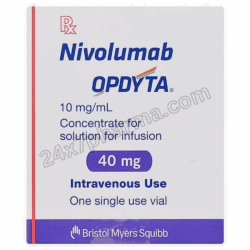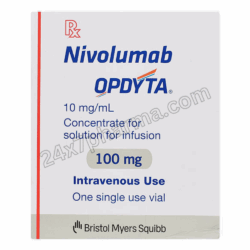About Nuparp 300mg Tablet
Nuparp 300mg Tablet is used in the treatment of prostate and ovarian cancers. It works by stopping the repair of damaged cancer cells, which stops their further growth, and kills the damaged cancer cells.
Nuparp 300mg Tablet can be taken with or without food, but better to have it at the same time every day. Your doctor will decide what dose is necessary and how often you need to take it. This will depend on what you are being treated for and may change from time to time. You should take it exactly as advised by the doctor. Taking it in the wrong way or taking too much can cause very serious side effects. It may take several weeks or months for you to see or feel the benefits but do not stop taking it unless your doctor tells you to.
The most common side effects of this medicine include increased liver enzymes, decreased appetite, anemia, weakness, gastrointestinal disturbance, acute myeloid leukemia (blood cancer), and nasopharyngitis (inflammation of the throat and nasal passages). Inform your doctor if you notice fever, chills, sore throat, and severe diarrhea. Regular blood tests are required to check your blood cells along with the heart, liver, and blood uric acid levels. It is advised to stay hydrated while taking this medicine to overcome diarrhea.
Before taking it, tell your doctor if you have heart disease, liver or kidney problems, or are taking any medicines to treat infections. Many other medicines can affect, or be affected by, this medicine, so let your healthcare team know about all the medications you are using. This medicine is not recommended during pregnancy or while breastfeeding. Effective contraception by both males and females during the treatment is important to avoid pregnancy.
Uses Of Nuparp Tablet
- Treatment of Ovarian cancer
- Treatment of Prostate cancer
Benefits Of Nuparp Tablet
In Treatment of Ovarian cancer
In Treatment of Prostate cancer
Side Effects Of Nuparp Tablet
Common side effects of Nuparp
- Rash
- Increased liver enzymes
- Decreased appetite
- Anemia (low number of red blood cells)
- Weakness
- Gastrointestinal disturbance
- Myelodysplastic syndrome
- Acute myeloid leukemia (blood cancer)
- Nasopharyngitis (inflammation of the throat and nasal passages)








